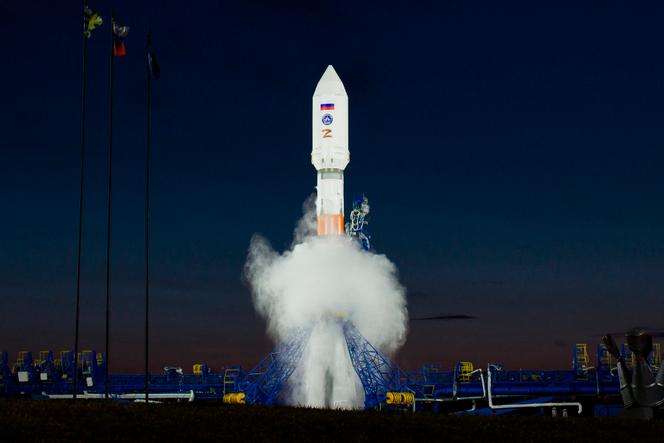


While Russian forces continue to gain ground on the Ukrainian front, there is another area on which Moscow seems to have been betting for several months in an attempt to destabilize Washington, Kyiv's main military ally: space. Tension has been mounting in this key area. The latest episode was the revelation by Pentagon spokesman General Pat Ryder, speaking at a press conference on Wednesday, May 22, of the deployment of a Russian space weapon in the same orbit as a US government satellite.
"Russia has launched a satellite into low-Earth orbit which we believe to be a space weapon capable of attacking other satellites in low-Earth orbit," said Ryder. Kremlin spokesman Dmitry Peskov refused to comment, only saying that Russia was acting "in full compliance with international law." For experts, the allegations show a revived competition between Moscow and Washington in military space.
"In recent years, during meetings between military space leaders, China was the main concern. Russia seemed a little out of its depth," said General Michel Friedling, France's first space commander between 2019 and 2022. "But since then, Moscow has come back with a vengeance, and seems to be stepping up its efforts even today," said Friedling, author of a book on the threats and challenges of the new space age (Commandant de l'Espace, ["Space Commander"]) and founder of Look Up Space, a start-up specializing in space debris monitoring and in-orbit satellite security.
Moscow has had most of the expertise on anti-satellite weapons since the 1960s-1970s, when the rivalry with Washington in space was at its peak. With the collapse of the Soviet Union, these programs were put on hold. However, since 2014, the year of the annexation of Crimea and the start of the war in the Donbas, Russia has reactivated them and stepped up the development of anti-satellite weapons. Long unsuccessful, these initiatives finally regained credibility at the turn of 2019-2020, and since then there has been a constant cat-and-mouse game with the US, according to Friedling.
In December 2019, Moscow set off a first alert for Washington with the successful launch of a satellite named Cosmos 2543, capable of releasing two other small satellites once in space – a sort of "nesting doll" satellite, as experts have called them. This initiative contravenes the rules of the space domain, where, to avoid objects colliding, each state registers in advance with the United Nations General Secretariat any object it intends to place in orbit. A few months later, in June 2020, according to the Pentagon, this same Cosmos 2543 went so far as to practice launching a space torpedo, whereas anti-satellite traditionally are launched from the ground.
You have 64.14% of this article left to read. The rest is for subscribers only.
